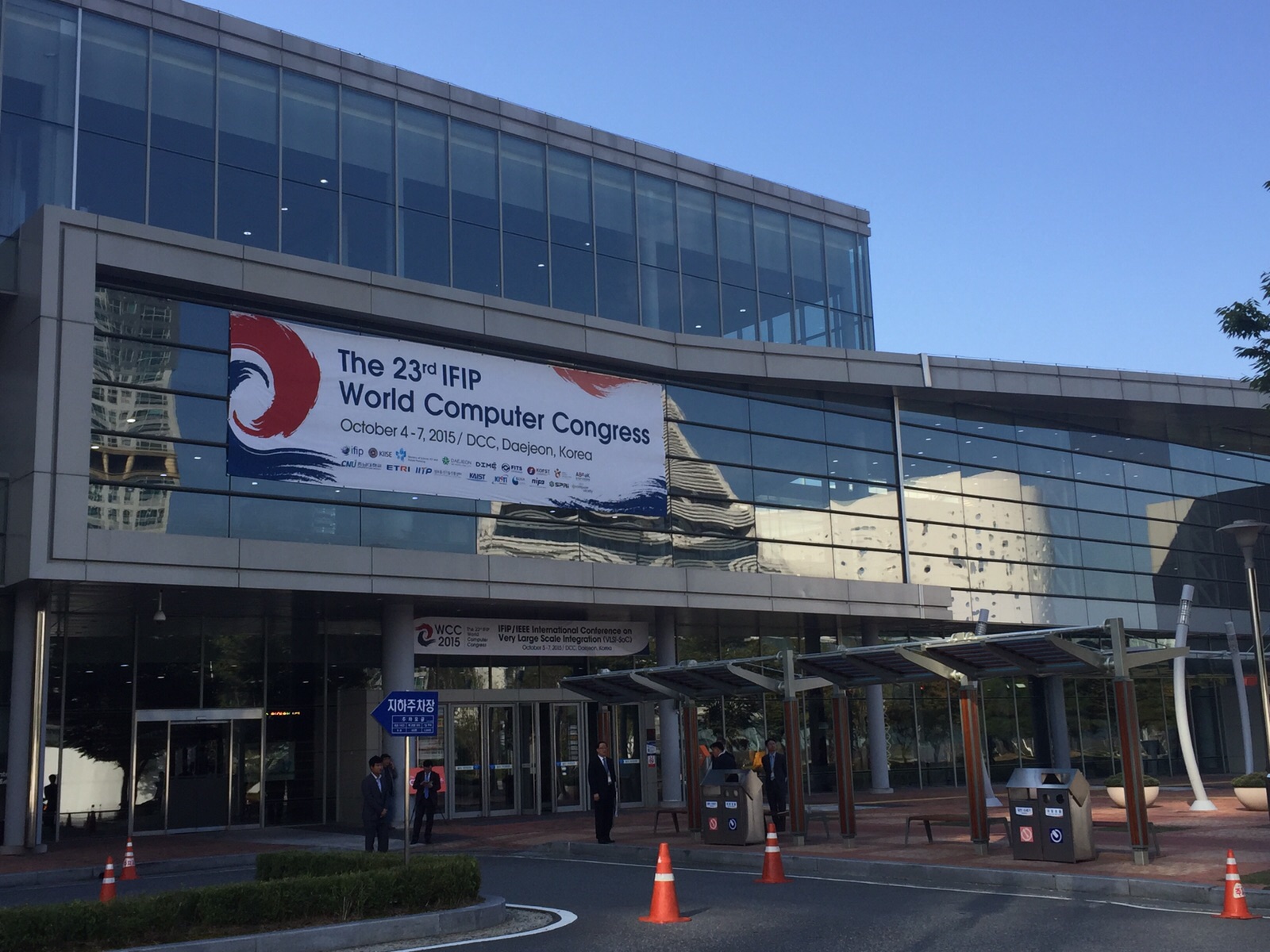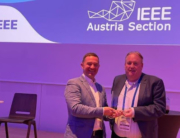MEDIA RELEASE
IFIP World Computer Congress 2015 Begins in South Korea
Delegates Warned of Impending Digital Quake as Key Mega Trends Drive Disruption
Monday 5 October 2015 – Daejeon, South Korea – The 23rd World Computer Congress kicked off in Daejeon, South Korea today with tips from Gartner about the top trends for 2016 and warnings of an impending digital quake from a respected industry pioneer.
Disruptive Megatrends
Canadian industry pioneer and founding Chair of the Global Industry Council with IFIP IP3, Stephen Ibaraki, gave a keynote presentation on the ICT Megatrends tipped to create a future digital quake likely to cause 80 per cent global disruption. In doing so, he cited the work of Pedro Domingos, Computer Science Professor at the University of Washington and winner of the SIGKDD Innovation Award, ICT’s equivalent to the Nobel Prize.
Mr Ibaraki, who has himself received over 50 national and international awards throughout his career and is a prolific industry commentator, highlighted the impact of megatrends including:
• Machine learning, as enabled by Big Data;
• The automation of scientific discovery, which dramatically speeds the pace of progress;
• The replacement of white collar workers (not just blue collar roles) by machines;
• The transition from deterministic to probabilistic computing; and
• The rise of evidence-based decisions in a wide range of areas, based on improved access to data.
Gartner Top Trends for 2016
Advanced machine learning was also one of three top trends highlighted by VP and Research Director of Gartner CIO Research, Andrew Rowsell-Jones. With predictions that enterprise IT budgets would grow by a global weighted average of one per cent over the coming year, Mr Rowsell-Jones pointed to trends of:
• Device Mesh, the interconnectedness of multiple, increasingly intelligent devices and data sources. Gartner predicts that in 2020, consumers will spend $65 billion on Smart Homes Services and that by 2021, one million new things will join the Internet of Things (IoT) every hour;
• 3D Printing (with predicted growth from around 300,000 units this year to almost six million units in 2019); and
• Smart Machines, expected to be the most disruptive trend over the next 10 years as the IoT drives massive increases in data to enable predictive analysis and machine learning.
Adding to the theme of digital disruption, Jin Hyung Kim, President of Korea’s Software Policy and Research Institute, pointed to existing and impending revolutions in mobile technology as well as for the automobile and health sectors, saying that cars now run not on fuel, but on software.
Mr Kim also highlighted the impacts on employment, particularly the youth market, saying that governments must act now to prepare young people for the jobs of the future.
IFIP Welcomes the World
Earlier, IFIP President Leon Strous welcomed delegates to the event and encouraged them to maximise their opportunities both for learning and for extending their professional networks. WCC2015 is the flagship event for IFIP, the global professional body for those working in ICT and computer science.
There were also messages of welcome from Professor Kim Dong-Yoon, General Chair of the Organising Committee for WCC2015 and Yanghee Choi, Korea’s Minister of Science, ICT and Future Planning, a former software engineer himself, who highlighted the importance of ICT as the driving force behind the digital economy.
WCC2015 continues until Wednesday 7th October 2015. For more information, visit http://wcc-2015.org/ and http://ifipnews.org.
About IFIP
IFIP, the International Federation for Information Processing, is the global professional federation of societies and associations for people working in Information and Communications Technologies and Sciences. Established under the auspices of UNESCO in 1960 and recognised by the United Nations, IFIP represents ICT professional associations from more than 50 countries and regions with a total membership of over half a million. It also brings together more than 3,500 scientists from industry and academia, organising them into over 100 Working Groups and 13 Technical Committees to conduct research, develop standards and promote information sharing. Based in Austria, IFIP organises and supports over 100 conferences each year, fostering the distribution of research and knowledge to academics and industry practitioners alike.
Website: http://ifip.org
Twitter: http://twitter.com/ifipnews
LinkedIn: http://www.linkedin.com/company/ifip–international-federation-for-information-processing
MEDIA ENQUIRIES
Caroline New: caroline@quantumvalues.com
Shuba Paheerathan: shuba@quantumvalues.com






